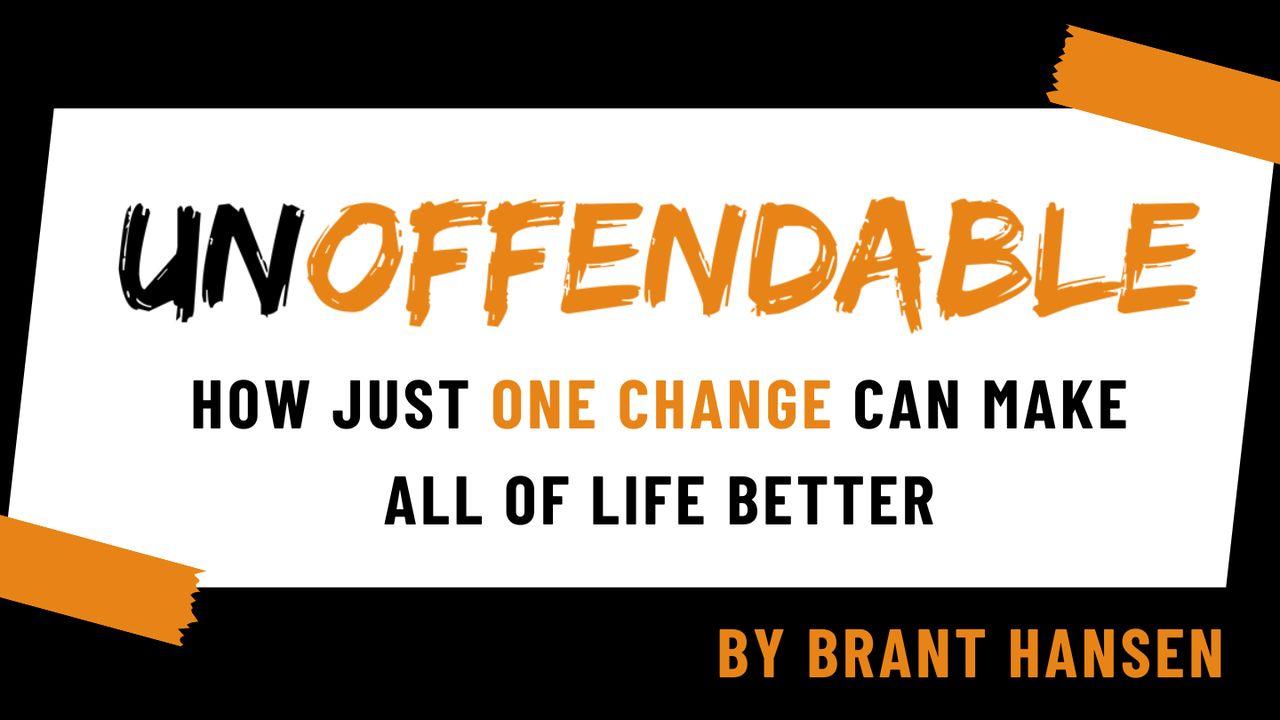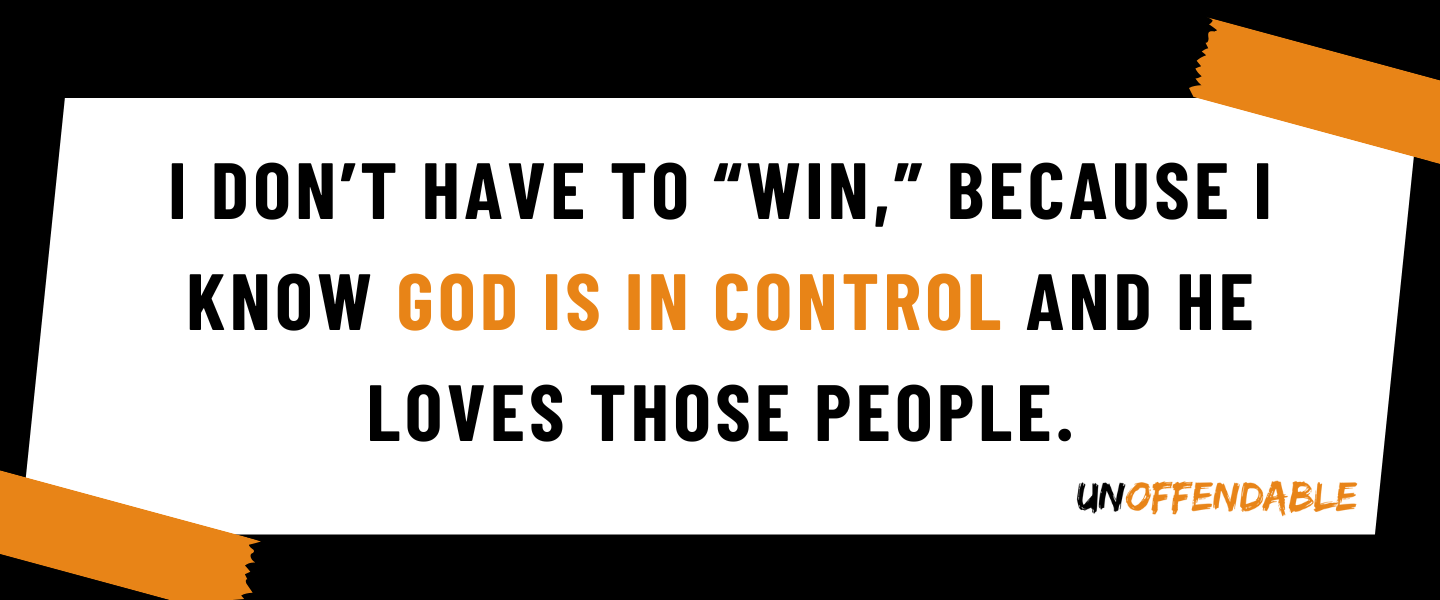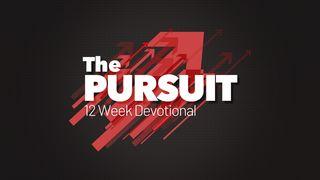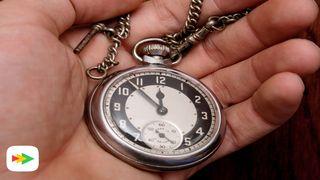UnoffendableSample


On Winning—and by “Winning” I Mean, of Course, Losing
Embracing Forgiveness Instead of Anger
I’m just really good at arguments. I can argue about God, and I almost always win!
And by “win,” of course, I mean “lose.”
Sure, in my fantasy world, I get to out-argue everybody and pin them to the logical mat, and they are so humbled, they turn to me, in tears, and ask what they must do to be saved. They are so in awe of the truth of my premises, validity of my argument, and soundness of my conclusions that they have no choice but to begin their relationship with God.
Yeah, it doesn’t work that way. Ever.
Without love, I’m just a bunch of noise. And even when well-intentioned, my arguments are abstractions. People have heard so many words. They want to see the love of God. We quote Scripture, saying, “God is love,” and “Love covers a multitude of sins” (1 John 4:8; 1 Peter 4:8 NLT), but if we don’t demonstrate this, our words are just more useless racket.
I’m convinced that this—the battleground of anger and offense, of forgiveness and letting go—is where it all matters. Jesus said our defining characteristic should be: love for one another.
And it’s not just love for those who are culturally similar to us.
This is why we can, and should, overlook offenses. This is why we give up our “right” to anger, however justified we feel in it. If I’m to love people the way God loves me, I have to love them faults and all.
Letting go of offense and anger means forgiving, and forgiveness means sacrifice. This is what’s so striking to me, as I get older, about Jesus: I’m simultaneously dumbfounded that I’m “off the hook” because of what He’s done for me, but still stopped in my tracks by what’s being asked of me.
It’s both. I know God has already forgiven me. And yet this very truth obligates me. It means if someone has done something to wound me, I have to endure a second hurt, one that feels like another wound. My sense of justice says the person who hurt me should pay; but with forgiveness, it’s the forgiver—the victim—who must pay again.
This will probably seem like a silly story, but I’ll share it anyway. I live in South Florida and I had a surfboard. (This makes little sense, given that I can barely balance myself on dry land, but that’s not important now.) My wife loaned it to some friends. They destroyed it and didn’t offer to pay for it.
At that moment, I had a choice: forgive them, and I, and my sense of justice, take the hit or refuse to forgive them and try to make them pay for it. In either scenario, someone pays.
I’m actually not going to tell you the end of the story, because it doesn’t matter. Whenever there’s an injury to a relationship, a hurt, a broken heart, or even a broken thing, and you are willing to forgive, you are saying, “I got this. I’m going to pick up the bill for this.”
This is, of course, precisely what God has done for us.
The cross simultaneously stands as a constant reminder of His willingness to “pay the bill” and as an indictment on us when we are unwilling to do the same for others.
There’s a story in Luke, where an apparently “good,” religious, and rich young man approached Jesus, wondering what he must do to inherit eternal life. Ultimately, Jesus placed a demand on him—sell everything and give to the poor—and we’re told the young man heard that and walked away, sad.
I think for many of us who live in this society that is so riven with anger, even addicted to it, Jesus is giving us a similar demand: “Give up your anger. Because of what I’ve done for you, give it up, and forgive.” Sadly, our response is, “That’s not fair.” And we walk away too.
One thing that strikes me about the rich young man story: Jesus doesn’t leave him with room to wriggle. The man will either do what Jesus says or walk away. There’s no splitting the difference, paying lip service, or trying to split theological hairs.
But we love to do this with forgiveness. Jesus tells His followers to forgive as we have been forgiven, yet we find reasons why this doesn’t quite apply in our situation.
Once, I inadvertently got into an argument on Twitter. I responded to a well-known actor/comedian who’d tweeted that whenever he talked about his atheism, people told him he shouldn’t, because it offends people. I replied that it’s too bad, because even though I disagree with him about God, I still love his perspective and his wit.
And that, for some of his followers, was “fightin’ words.” I have no idea why. But as we went back and forth, I was reminded again of how God is helping me grow up. I didn’t need to, or even want to, “win” an exchange. I know there’s nothing to win. I knew the people attacking me weren’t really attacking me. I don’t know what they’ve been through.
I don’t have to “win,” because I know God is in control and He loves those people. And I don’t have to “win,” because there’s no status at stake. When people make assertions about me, I can actually think them over and occasionally say, “You know what? That’s a good point.”
I’m not “winning” or “losing,” because I’m not even playing that game anymore. I’m off the board. Jesus is giving us a completely different way to live, and it’s one that sets us free from anger, free from ever-present guilt, free to really love people, free to forgive as Jesus forgives.
Respond
Are you struggling with choosing forgiveness over anger? Explain.
Write a brief prayer asking for the Lord’s help.
Prayer
Lord Jesus, thank You that I can choose to forgive as You have forgiven me.
Scripture
About this Plan

Giving up your “right” to be offended can be one of the most freeing, healthy, simplifying, relaxing, refreshing, stress-relieving, encouraging things you can do. Being "unoffendable" helps lift religious burdens from our backs and allows us to experience the joy of gratitude, perhaps for the first time, every single day of our lives—flourishing the way God intended.
More









